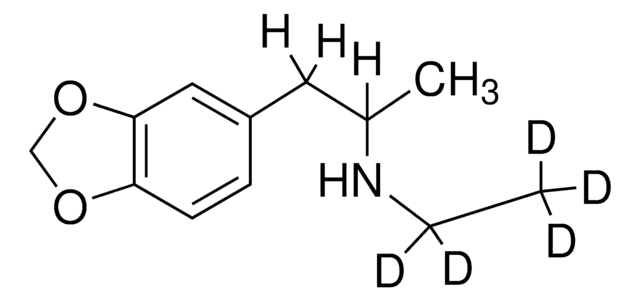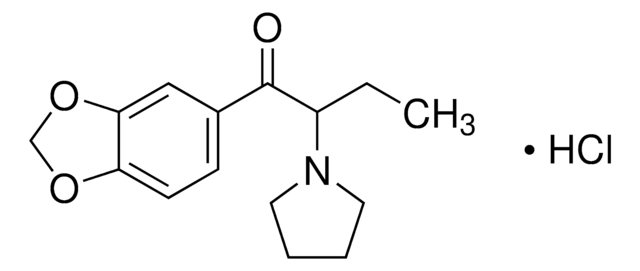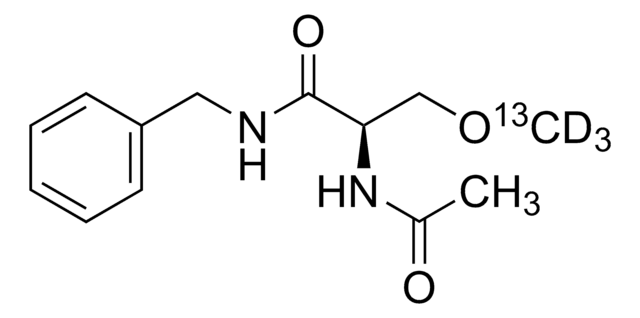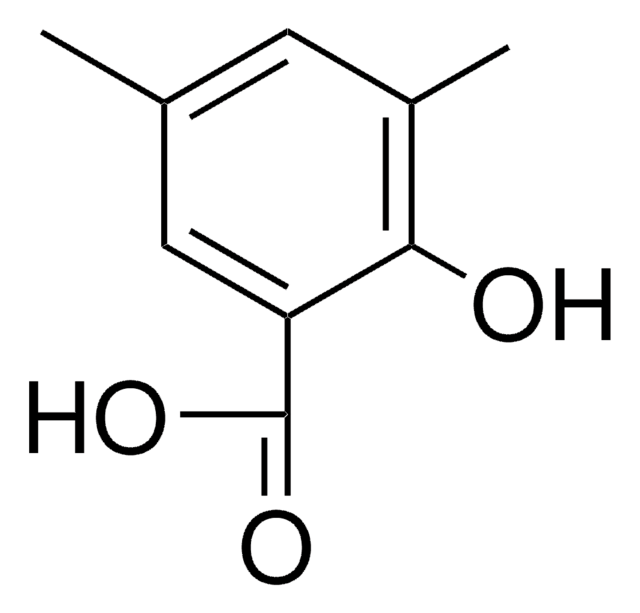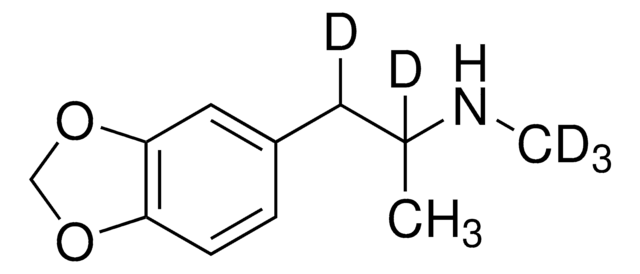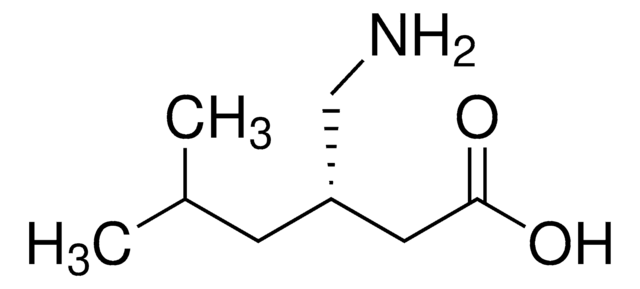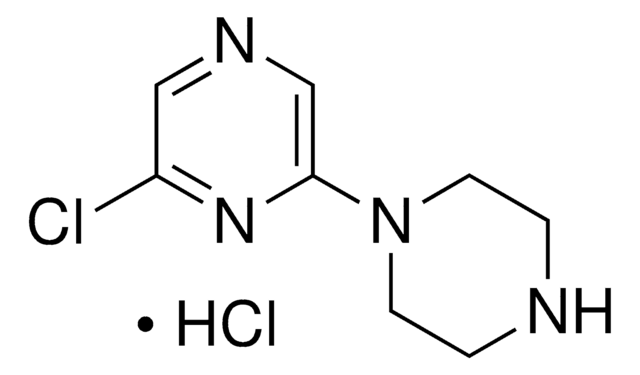M-144
MDAI hydrochloride solution
100 μg/mL in acetonitrile: water (9:1) with 5% 1 M HCl (as free base), ampule of 1 mL, certified reference material, Cerilliant®
About This Item
Recommended Products
grade
certified reference material
Quality Level
form
liquid
feature
Snap-N-Spike®/Snap-N-Shoot®
packaging
ampule of 1 mL
manufacturer/tradename
Cerilliant®
drug control
Narcotic Licence Schedule E (Switzerland)
concentration
100 μg/mL in acetonitrile: water (9:1) with 5% 1 M HCl (as free base)
technique(s)
gas chromatography (GC): suitable
liquid chromatography (LC): suitable
application(s)
forensics and toxicology
format
single component solution
storage temp.
−70°C
SMILES string
Cl.NC1Cc2cc3OCOc3cc2C1
InChI
1S/C10H11NO2.ClH/c11-8-1-6-3-9-10(13-5-12-9)4-7(6)2-8;/h3-4,8H,1-2,5,11H2;1H
InChI key
DEZYWEZDXRXACY-UHFFFAOYSA-N
General description
Legal Information
related product
Signal Word
Danger
Hazard Statements
Precautionary Statements
Hazard Classifications
Acute Tox. 4 Dermal - Acute Tox. 4 Inhalation - Acute Tox. 4 Oral - Eye Irrit. 2 - Flam. Liq. 2
Storage Class Code
3 - Flammable liquids
WGK
WGK 2
Flash Point(F)
55.4 °F - closed cup
Flash Point(C)
13 °C - closed cup
Certificates of Analysis (COA)
Search for Certificates of Analysis (COA) by entering the products Lot/Batch Number. Lot and Batch Numbers can be found on a product’s label following the words ‘Lot’ or ‘Batch’.
Already Own This Product?
Find documentation for the products that you have recently purchased in the Document Library.
Our team of scientists has experience in all areas of research including Life Science, Material Science, Chemical Synthesis, Chromatography, Analytical and many others.
Contact Technical Service